Class of 2010 - Present
- Alexander Oluwaleke Akerele (Chemical Engineering 2015)
- Bilal Khan (Biology 2014)
- Christie Pemberton (MSc Management 2018)
- Claire Boothby (MSc Ecological Applications 2016)
- Ioan Clark (MRes Advanced Molecular Synthesis 2023)
- Omar Mohamed El Halawany (MSc Finance and Accounting 2022)
Provided by Leke’s Parents and siblings
05.12.1993 - 02.02.2023
It is with deepest sorrow that we inform you of the death of our beloved Alex Oluwaleke Akerele (Born 5th December 1993) who passed away into God’s loving arms on 2nd February 2023.
Leke was an avid sports fan, who followed almost every sport and had exceptional knowledge of sports matters. He thoroughly enjoyed his time at Imperial College and made lifelong friendships with Chuks, Mayowa, and Lotanna to name a few. He had an eidetic memory and his breadth of knowledge was truly outstanding from history to politics to geography and of course sports.
 We thank God for the loan of His son, Alex Oluwaleke, for the joy of his presence in our home, and for the privilege of loving and caring for him. Our pain and sorrow is God's joy, as his spirit returns to God's care. Please pray for Leke and all his loved ones. We pray God grants us all strength to relinquish him without grief, in the sure knowledge that we shall be re-united with him in that other world where all God's children enjoy complete health of mind and spirit. Amen.
We thank God for the loan of His son, Alex Oluwaleke, for the joy of his presence in our home, and for the privilege of loving and caring for him. Our pain and sorrow is God's joy, as his spirit returns to God's care. Please pray for Leke and all his loved ones. We pray God grants us all strength to relinquish him without grief, in the sure knowledge that we shall be re-united with him in that other world where all God's children enjoy complete health of mind and spirit. Amen.
May his beautiful soul rest in perfect peace.
Provided by Bilal's wife and fellow Imperial graduate, Batool Raza
The boy in the red tracksuit
A teenager in a red hoodie and tracksuit arrived on the South Kensington campus of Imperial College London in October 2011. He came from a place called Alum Rock in Birmingham. Little did he know that this first step into Imperial would also be the beginning of the last six years of his life. Those six years would define him as an example for others in his hometown, as someone who showed inspiring levels of determination and resilience.
Bilal Khan wasn’t your run-of-the-mill character. He was extremely grounded from his upbringing in a tight-knit, working-class family with a strong sense of community around him. He also had a special kind of charisma that was difficult to ignore when you interacted with him. His presence on campus was noticeable – he made sure of it.
How surprising it might be then for people to know that underneath this confidence was a mix of nerves and uncertainty. Bilal didn’t necessarily take his first steps into university with the giddy excitement that I did. I met him on my first day on campus as we were on the same course together, both about to embark on our degree in Biology. All I was thinking about was what social events to go to and what societies to join. For Bilal, this was a bigger step in his whole life trajectory. Even walking through South Kensington was an other-worldly experience for him. For me, it was just a tube ride away from my home in North-West London.
Going to one of the top universities in the world, Bilal was about to mingle amongst peers who were largely middle-class (including me) or privately educated, often from very wealthy families. He didn’t necessarily share the same perspectives on life and had been through very different experiences growing up. What he had experienced in school and college was worlds away from what his university classmates had grown up in. His life in Alum Rock meant exposure to crime, drug dealers, and gang violence that many of his university counterparts could only theorise. It means that if he had taken just a few steps in the wrong direction, his world could have looked completely different and certainly wouldn’t have involved gaining a university degree or creating a fulfilling and lucrative career.
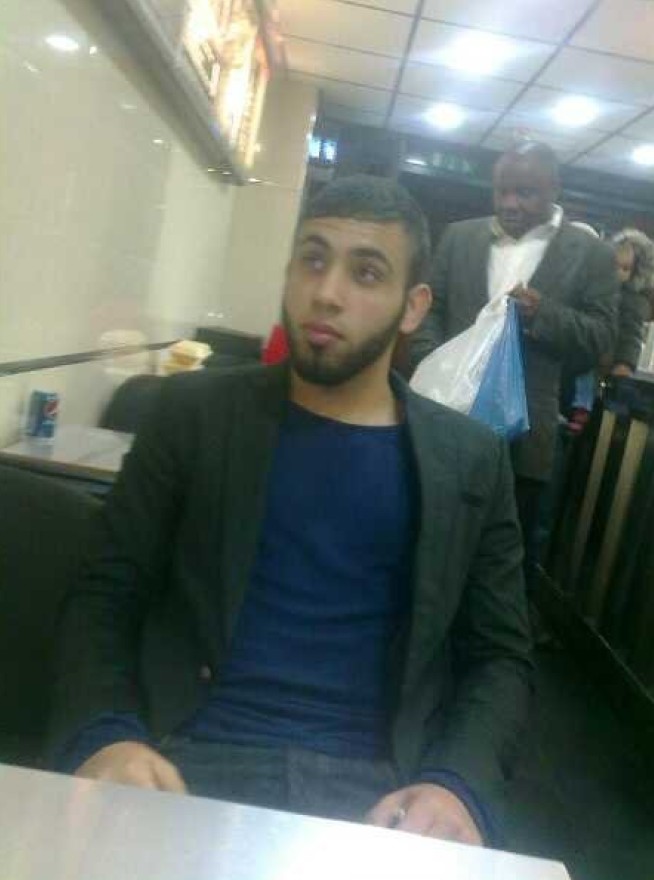
Growing up in this kind of atmosphere meant that he was entering university with a different set of circumstances that didn’t give him the same social and financial capital to work with as other students. This can directly affect your experience as many of us who have the advantages of financial freedom and social networks don’t realise the position of ease it puts us in when entering different stages of our lives. The dissonance with his peers would also be obvious to Bilal but not necessarily well understood by his fellow students.
I learnt all this very quickly through my unexpected friendship with him that grew into a bond so strong that we ended up as husband and wife. He proceeded to burst my middle-class bubble permanently as I journeyed with him through our conversations and my visits to Birmingham where I walked in his shoes as he described stories from his childhood to me.
On top of stepping into a world previously unbeknownst to him, Bilal was diagnosed with a genetic heart condition called Hypertrophic Cardiomyopathy in his teen years. This landed him in hospital for most of the summer between his first and second year of uni. Bilal was a huge fan of sports like boxing and was a regular weightlifter at the gym. His worsening condition meant that he couldn’t continue with these in the same way. Taking part in these sports and activities was a huge aspect of his identity, contributing to both his mental and physical health as well as his social life. At the same time as his dreams and aspirations were realized through studying at Imperial, another huge aspect of his identity – weightlifting and boxing – was forsaken at the same time due to his health condition worsening.
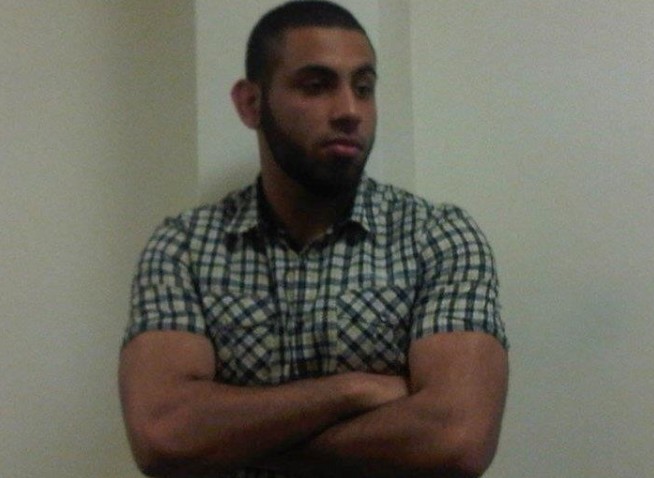
Embarking on a degree in a competitive environment, stressing about deadlines and exams, keeping up a fulfilling social life, and spending time trying to get work experience and apply for jobs to set yourself up for the future is challenging for the best of us at the best of times. For those of us with the blessings of time, money, health, and comfortable circumstances, we still find ourselves in despair when these things don’t go our way. Bilal had the option of taking a year out after his time in hospital but took the decision to continue with his degree. Even though lots of factors such as his health got harder for him each year of university, he continued with determination and resilience.
Bilal was also an extremely generous character, always helping those around him and sharing small nuggets of wisdom, even at such a young age. Here are some stories from former Imperial students who came from a similar background to Bilal and interacted with him at university:
“Bilal was an incredible character of great moral fortitude and was a huge comfort and help to me during my first two years of uni. He helped me with housing decisions, careers advice and was a real confidante and mentor in every sense of the word. He provided a calm presence and sense of familiarity during those tumultuous years of my growth and played an instrumental part in the person I am today. Not only did he help me settle into university and feel like I belonged, he was also an inspiration to me as well. Some people, despite their short life, leave an incredible presence and impact and Bilal was surely one of them.” Shuaib Choudhry (MSci Physics with Theoretical Physics 2016)
“When I first met Bilal, I was in awe of his journey to Imperial. He told me he was from Alum Rock in Birmingham, which is one of the more deprived areas of the city. I knew that Bilal was a grafter – to come from his background and get into Imperial, you had to work at least twice as hard as everyone else to earn your place. Without this energy, many young people from similar backgrounds, unfortunately, get dragged down or pulled to the wayside. Bilal was one of the very few people who would try to help me out when I faced challenges during university life. One day, he asked me how my CV was looking. I told him it wasn’t great as I didn’t have much to write about. He then told me to come with him to the computer lab. I showed him my best CV and he proceeded to write me a brand new one. We sat for nearly an hour like this, Bilal redrafting the same sentence multiple times if he didn’t think it looked right. Once he thought it was as good as he could make it, he gave me advice on how I needed to get some work experience before graduating. Then, without much warning, he got out of his chair and left the room. His job was done. I did not even get the chance to say thank you. The CV that Bilal wrote for me is the same one I use to this day. I got my first job with it. How many other people in my life had given me a gift as valuable as the one Bilal gave me that day? Within university, and in life in general, I have met a large number of people who I could have a nice conversation or share a joke or two with. Bilal was different. He understood his role on this earth was a higher one than this. His knowledge, patience, attention, and focus made a tangible difference to my life, as I’m sure it did to others. My life would certainly be poorer without his presence.” Adnaan Chaudhry (MEng Civil Engineering 2016)
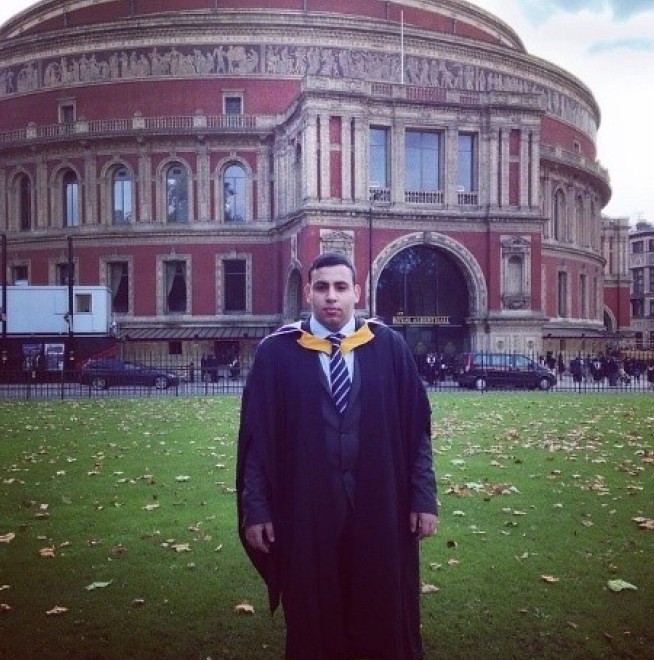
Despite the hardships Bilal faced, he completed his Biology degree and went on to join JP Morgan’s competitive graduate scheme, working in the heart of Canary Wharf, where many graduates aspire to start their careers. During his first year there, his mother, who he cherished deeply, sadly passed away. There is no right way to deal with someone passing away, but there was something special about Bilal’s attitude in the face of life events. A sort of pragmatism, but not without emotion or depth. His upbringing within his home community in Birmingham clearly shaped this significantly.
He went from working in Prime Brokerage in the Operations department of a respected global bank to Execution Trading, and his most recent role was in Quantitative Platform Engineering. His increasing success was impressive but unsurprising to me as his partner, knowing his intelligence and potential. He knew how significant his career trajectory was, coming from humble beginnings to suiting up in Canary Wharf and moving so fast to increasingly complex and challenging roles (only Bilal could have made the move from Biology to Tech appear so seamless). How he presented himself to the world was completely different though, with a quiet humility that would leave people not quite understanding how remarkable this man was that was sitting in front of them.
All this to say, he is an example of someone who entered university with a different understanding of life to most of us. He came from a working-class background, entered a social circle where most people didn’t ‘get’ him (including me at first), faced all these challenges and still made a success of his life and career. His career path was also an excellent example of the alternative routes you can take with a STEM degree.
Bilal sadly passed away on 27 September 2019. He was my best friend who became my husband for one year and eight months. But his story isn’t really about our relationship, his heart condition or even his death. Bilal’s is a story of a boy in a red tracksuit who took his first steps into the last six years of his life, and made those steps inspirational through his courage, charisma, and cracking a lot of bad jokes.
I wrote this because Bilal never advertised the obstacles he faced or his achievements in life. He did however regularly express his feelings about those who came from a similar background to him, and how they needed to hear from someone who could relate to them in order to really be inspired to create positive trajectories in their lives. I always told him he should become a mentor for others in his hometown because he was so inspirational. This article is just giving an insight into his approach to life from someone who was close enough to him to appreciate it. His time at Imperial contributed so much to the years that shaped him into the man that he was, and he would be proud if even one person reading this was motivated to take those first steps to achieving their goals or overcoming their obstacles like he did from the moment he stepped into Imperial.
Even though I was his wife, my words really can’t do him justice. His life was short but full to the brim with lessons that we can all learn and take heed from. If you take anything from his story, please be encouraged by his attitude and patience in his personal and professional life.
In honour of Bilal Khan, originally from Dadyal, Azad Kashmir, and raised in Alum Rock, Birmingham, 1992-2019.
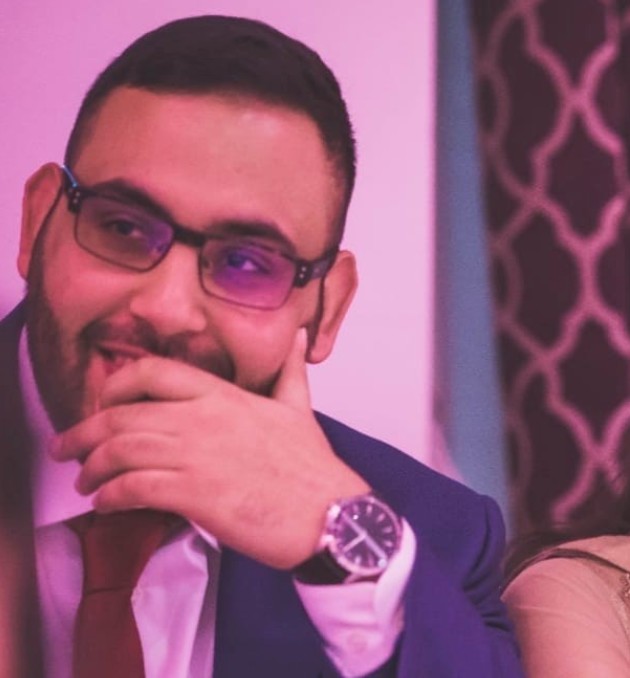
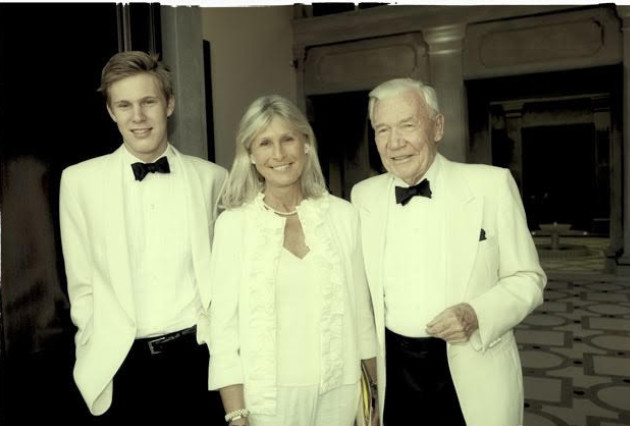 Provided by his friend, George Duncan
Provided by his friend, George Duncan
Christie Pemberton died of unknown causes at his family’s home in Jamaica on 19 March 2020. Survived by his parents Melody and Nigel, Christie was tragically just 27 years old when he died.
Born in August 1992, Christie spent the early years of his life in Jamaica, where he attended primary school and learned to speak patois fluently. The bonds of friendship Christie established during this time were deep and lasting, and he cherished nothing more than spending time on the island with his friends, family and goddaughters.
Christie went on to study at the Charterhouse and then University College London (UCL), graduating with a first in politics in 2015. His dissertation was highly commended and its quality was all the more remarkable in light of the terrible back pain Christie endured during his final year at UCL, following an accident earlier that year – indeed, Melody remembers him typing away doggedly while lying in bed convalescing. His perseverance and focus in the face of adversity was recognised and admired by friends and academic tutors alike.
In spite of the personal challenges he faced as a result of his back injury, fellow students from UCL remember Christie as an affable and fun-loving young man with a keen sense of humour, who never failed to furnish his friends with laughter, care and support. I can remember him taking the time to explain tricky theories and concepts to friends in an interesting way ahead of exams, and cracking jokes to help calm nerves. His lecturers remember him as a diligent, outgoing and charming undergraduate, who would often wait around after lectures for the opportunity to ask detailed questions about their subject areas, or invite them to discuss certain topics over a cup of coffee.
In 2017, Christie continued his studies, enrolling on a Master’s course at Imperial Business School. He hoped to use the skills and knowledge he acquired at Imperial to establish a business in Jamaica. Although he had yet to settle on a specific venture and was still exploring his options, I got the strong impression that he was determined to use his studies to give back to and create opportunities in the country he was so fond of.
Christie was passionate about sport and could alternately be found on the tennis court, the golf course, the running track or the swimming pool – or supporting his football team, Arsenal. In Jamaica, he competed regularly in sporting events like the Montego Bay City Run, and could often be seen freediving and spearfishing with the fishermen of Hopewell, a fishing village near his home in Hanover Parish. In the UK, he used half-marathons as an opportunity to raise money for the charity Combat Stress, and at the time of his death was training for a triathlon he planned to participate in with his uncle and cousin.
On a personal level, Christie was an invaluable friend to me. He was always there to listen and offer support during difficult times, and to laugh and celebrate with me in good times. His absence will forever be sorely felt, by myself and many others.
Provided by Jackie Boothby
29.07.1988 - 05.01.2025
Our lovely, kind and inspirational daughter CLAIRE BOOTHBY died on the 5th January 2025, aged 36, much too soon.
At 18 Claire spent her gap year in South Africa, at the Sanbona game reserve. It was here she decided that conservation was the field she wanted to work in. On her return home she volunteered with ZSL (London Zoo). She, of course, needed to find employment, so she got a job with the National Trust, at Polesden Lacey, in Bookham, Surrey. Claire enjoyed her work here, making many friends, including her husband-to-be Andy. She undertook a BSc at Birkbeck, in Biodiversity and Conservation, this was a part time evening course over 4 years, and she obtained a first class Honours degree.
The National Trust then seconded her to the Farne Islands as a ranger, living in a medieval tower, surrounded by birds, Arctic Terns, Puffins, Gannets, Razorbills and more.
In November 2015 Claire enrolled on a MSc course with Imperial College, London, studying Ecological Applications, which was based at the Silwood Campus, what a lovely location. As part of her Masters she returned to the Farne Islands, devising a simple but effective method of reducing the predation by gulls on the eggs and chicks of the vulnerable, ground nesting Arctic Terns. The results of which where shared with the National Trust, after graduation, and written up in an article in a Scientific magazine. We were such proud parents when we attended the graduation ceremony at the Albert Hall in November 2016.
Claire then began work with the British Trust for Ornithology, with the Garden Bird Team. She headed a citizen science project named "Heard a Tawny", for which she was interviewed on Breakfast TV by Charlie Stayt and Naga Munchetty. The BTO is based in Thetford, and she wanted to be nearer family, and Andy, and so she then successfully applied to the Bat Conservation Trust, based in London, and here she did valuable work, including working on a 5 year project "Bats in Churches" funded by the National Lottery.
Happiness was not to last, in 2021 she was diagnosed with breast cancer, following a year of horrible treatment, in January 2022 she was declared in remission, 2022 was a golden year. Claire and Andy had the perfect wedding day in August 2022, the setting was lovely, the sun shone, a small number of family and close friends watched as Claire, looking radiant, and Andy, very emotional made their vows. They were so happy.
It was not to last, in 2023 cancer returned and secondary cancer cannot be cured. However Claire drew on an enormous well of courage, determined to do as much with the time available to her. She raised a lot of money for charities, sky diving, wing walking, abseiling down the Spinnaker Tower in Plymouth. She and her friends in her Secondaries Group put on a very successful fashion show for Breast Cancer Now.
In October 2024 she donated a large sum of money to Polesden Lacey, enough to plant 10 British Native trees in the wider estate. She also planted a Cedar of Lebanon in the formal garden, on the lawn in front of the Children's play area, we had a ceremony in front of her family and past colleagues, the gardeners had dug the hole and planted the tree, and Claire was well enough to back fill it. This is where we will go to remember Claire, and say a small prayer.
The world is a sadder place for her passing, she did so much good, and her family and friends will remember her vivacious spirit, her loving ways, and be thankful for the 36 years we spent with her.
Provided by CDT React
Ioan Clark was a fun-loving and sociable student, who loved nothing more than spending time with his friends and family. He was also very driven and intelligent, with a passion for Chemistry. At the time of his death, he was a postgraduate researcher at the CDT React Imperial College London, where his research focused on developing a new platform for targeted drug delivery.
He embodied all the values that make us proud of our CDT React community. He was hardworking, kindhearted, and supportive of all his peers. We are so incredibly proud of his achievements during his time with us.
Ioan was a wonderful and extremely popular student who will be deeply missed by friends and colleagues from across the College.
Provided by classmates: Maria, Eva, and Johnny
Omar El Halawany was a dedicated, cherished and highly respected member of the Imperial Family. He loved nothing more than his family and friends and dedicated his whole life in always being present to help others.
Omar taught everyone who was willing to learn the power of knowledge and hard work. He was never afraid of being honest and showed strong courage - being a true role model for everyone around him.
Omar started in Civil Engineering, but soon realised safety boots were not made for him. He joined Imperial in 2021 and excelled at the MSc in Finance & Accounting. Always aiming for excellence, he was awarded the Deans List, scoring at the top 10% of the cohort.
Omar made all his friends feel like family, put 110% effort to surpass all challenges in life but God decided to take him way too soon.
Omar will be missed by everyone.